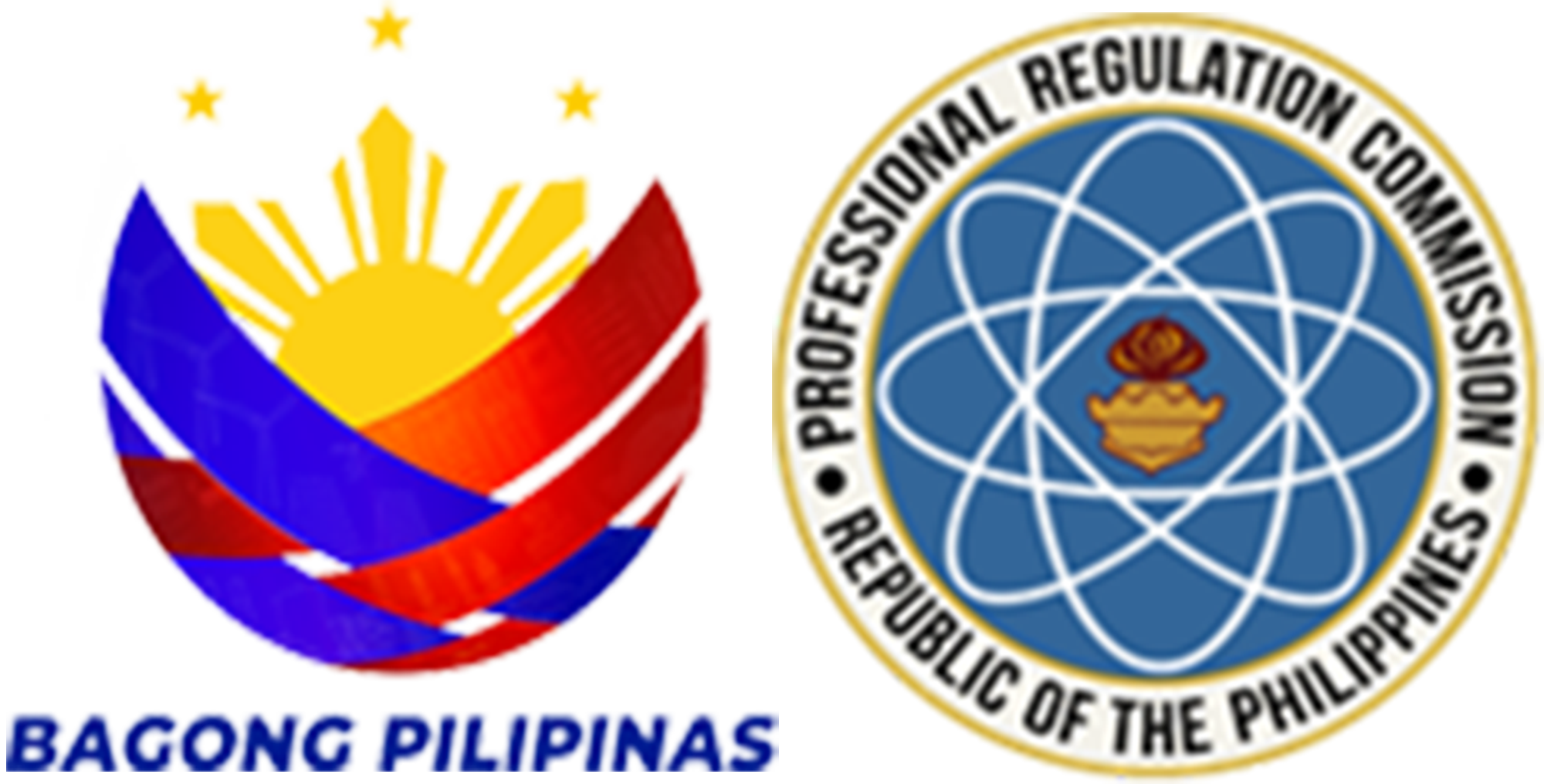
REPUBLIC ACT NO. 10862 “Nutrition and Dietetics Law of 2016”
AN ACT REGULATING THE PRACTICE OF NUTRITION AND DIETETICS IN THE PHIUPPINES, REPEALING FOR THE PURPOSE PRESIDENTIAL DECREE NO. 1286, KNOWN AS THE “NUTRITION AND DIETETICS DECREE OF 1977”, APPROPRIATING FUNDS THEREFOR AND FOR OTHER RELATED PURPOSES
Qualification of Board Members
There is hereby created a Board of Nutrition and Dietetics, herein referred to as the Board under the Commission. It shall be composed of a Chairman and two members, all to be appointed by the President of the Philippines upon the recommendation of the Commission from among nutritionist- dietitians of recognized standing in the Philippines, nominated by the accredited professional organization of nutritionist- dietitians in the Philippines and who, at the time of their appointment, shall:
- Be a citizen and resident of the Philippines;
- Be at least thirty (30) years of age, and of good moral character;
- Be a holder of a bachelor, masters or doctorate degree conferred by a reputable and legally constituted school, college, or university with nutrition, dietetics community nutrition or Public Nutrition as their major field of study;
- Have at least five (5) years experience in the field of nutrition and dietetics, immediately prior to his appointment;
- Be a registered nutritionist-dietitian except the members of the first Board who should be registered dietitians;
- Not be a member of the faculty of any school, college, or university, conferring a bachelor’s degree with nutrition, dietetics or community nutrition as a major study at the time of appointment nor during the year immediately preceding appointment as member of the Board. Neither should she have any direct or indirect pecuniary interest in such institution.



REPUBLIC ACT NO. 10862 “Nutrition and Dietetics Law of 2016”
AN ACT REGULATING THE PRACTICE OF NUTRITION AND DIETETICS IN THE PHIUPPINES, REPEALING FOR THE PURPOSE PRESIDENTIAL DECREE NO. 1286, KNOWN AS THE “NUTRITION AND DIETETICS DECREE OF 1977”, APPROPRIATING FUNDS THEREFOR AND FOR OTHER RELATED PURPOSES
As early as 1939, attempts had been made to start a nutrition program at the University of the Philippines. The initiative was resumed in 1946, with the offering of a Bachelor of Science in Home Economics, Major in Food and Nutrition at the UP College of Education, Department of Home Economics. The first five graduates of 1948 left for the United States for Dietetic internships and graduate programs.
The first breakthrough in the recognition of dietetics as a profession came with the creation of the Dietetics Department at the Philippine General Hospital in 1952. In 1955, the Dietetic Association of the Philippines was incorporated to answer the need to organize the increasing number of dietitians entering the profession.
Republic Act No. 2674, entitled “An Act to Regulate the Practice of Dietetics in the Philippines,” was passed in 1960, with the first Board Examiners being appointed in 1961. Prior to the enactment of the law, special qualifying examinations were administered by the Civil Service Commission, at the request of government dietitians who wished to avail of civil service benefits. In 1978, realizing the demand for nutrition graduates in areas other than hospital dietetics, the Dietetic Association of the Philippines worked towards the signing of Presidential Decree No. 1286, entitled “Regulating the Practice of Nutrition and Dietetics in the Philippines, and for other Purposes,” to repeal Republic Act 2674. The name of the bona fide professional association was likewise changed from Dietetic Association of the Philippines (DAP) to Nutritionist-Dietitian’s Association of the Philippines (NDAP).
In 1980, the Nutritionists-Dietitians’ Association initiated Continuing Professional Education as a requirement for renewal to Active Membership. This activity was turned over to the PRC – Continuing Professional Education Council.
The peak in the curve of entrants into the profession was reached in the mid sixties. Graduates continued to apply for internship and graduate programs in the US, and the number of schools offering 4-year degree programs continued to increase. To insure that the recommended curriculum would be adopted, and to assist in monitoring the school programs, an Organization called Council of Deans and Heads of Schools offering Nutrition and Dietetics (CODHEND) was organized in 1983. Another milestone in the recognition of nutritionist-dietitian graduates from the Philippines in 1993, is the Reciprocity Agreement between the PRC and the Commission on Dietetic Registration of the American Dietetic Association (ADA).
Click HERE to view the list of Accredited Integrated Professional Organizations (AIPOs) /Accredited Professional Organizations (APOs)
In order to be admitted to the examinations for nutritionist-dietitians, an applicant must, at the time of filing his or her application, establish to the satisfaction of the Board that:
- He or she is a citizen of the Philippines;
- He or she is at least twenty one years of age, in good health and is of good moral character;
- He or she had finished a standard academic high school course or its equivalent in a school, college or university legally established and duly recognized by the government;
- He or she is a holder of a bachelor's degree conferred by a reputable and legally constituted school, college or university with nutrition, dietetics or community nutrition as a major study;
- He or she has completed the required practical training as may be prescribed by the Board; Provided, That within three years after approval of this decree, graduates of Nutrition and Dietetics who have undergone dietetic internship may be admitted to the Board.
Educational Qualification / Training / Experience:
- B.S. in Nutrition and Dietetics
- B.S. in Food and Nutrition Certificate of completion of practical training in
- Public Health Nutrition - 250 hrs.
- Food Service - 150 hrs.
- Hospital Dietetics - 200 hrs. (FTB)
Scope of Examination
The examinations for the practice of nutrition and dietetics in the Philippines shall consist of written tests which shall cover such subjects as the Board may prescribe.
Ratings in the Examinations
To pass the examinations, a candidate must obtain an average of seventy percent, with no rating below fifty percent in any subject: Provided, That an applicant who fails to obtain a passing average but who obtained at least seventy percent in each of at least one-half of the total subjects given in the examinations, may be permitted to take within one (1) year from the date of his examination, another examination, on the subjects in which he obtained a grade below seventy percent. Should the examinee fail in the set of subjects repeated in the second examinations, he shall be required to take all the subjects in the next examinations.
Exempt from Registration
Registration shall not be required of nutritionist-dietitians, from other countries called in for consultations: Provided, That a certificate of exemption shall be secured from the Board in advance.
Requirement for Hospitals and Nutrition Agencies
- Hospitals - All hospitals whether government or private with twenty five (25) to seventy five (75) bed capacity shall employ a minimum of one nutritionist-dietitian, above seventy five (75) to one hundred fifty (150) bed capacity, a minimum of two nutritionist-dietitians, above one hundred fifty (150) to two hundred fifty (250) bed capacity, a maximum of three nutritionist-dietitians, above two hundred fifty (250) bed capacity to five hundred (500) bed capacity, a minimum of four nutritionist-dietitians and above five hundred (500) to one thousand (1,000) bed capacity, a minimum of five nutritionist-dietitians: Provided, That no person shall be employed as nutritionistdietitian in any hospital without having been registered in accordance with the provisions of this Decree. The provisions of this section shall be complied with within one year form the date of effectivity of this Decree.
- Nutrition Agencies - All these agencies whether government or private shall employ registered nutritionist- dietitians. There shall be required at least one (1) nutritionist-dietitian for each province, city, municipality and rural health units.
Foreign Reciprocity
No foreigner shall be admitted to examinations, or be given a certificate or registration or be entitled to any of the rights and privileges under this Act, unless the country or state of which he is a subject or a citizen permits Filipino nutritionist-dietitians to practice within its territorial limit on the same basis as the subjects or citizens of said country or state: Provided, however, That number of foreigners allowed to practice in the Philippines shall not exceed the number of Filipinos practising in their respective countries.
US RDN Examination?
Under the International Affairs/Agreements section is the Reciprocity Agreement between PRC and the Commission on Dietetic Registration (CDR). CDR is the credentialing agency for the Academy of Nutrition and Dietetics. Through this Reciprocity Agreement a RND may take the RD examination in the US after submitting credentials required. There are only 3 countries in the world that CDR has a Reciprocity Agreement with and these are: Ireland, the Netherlands and the only Asian country… the Philippines.
How to get the Eligibility Application Form:
Send an email to cdrexams@eatright.org regarding your interest to take the Registration Examination in order to recieve and international registration eligibility application:
Visit CDR’s website at www.cdrnet.org
Visit ADA Academy of Nutrition and Dietetic’s website at www.eatright.org
Where to apply for Foreign Degree Equivalency Report:
https://www.eatrightpro.org/acend/students-and-advancing-education/information-for-students/foreign-degree-evaluation-agencies.
Note: Applicants are responsible for complying with all agency procedures and costs. You are advised to call the above agencies for details for procedures and payment.
How to apply for the Verification Statement
- Apply through the PRC Registration Office for a Verification Statement on a CDR letterhead through the Board of Nutrition and Dietetics.
- Renew your PRC ID if it has expired. For RNDs whose license are about to expire within the year, earlier renewal than stated date on PRC ID Card is allowed.
- All individuals requesting a verification statement from the PRC must submit to PRC documentation latest resume certifying the completion of at least three years experience in any field related to nutrition and dietetics.
To verify if you are eligible under the Reciprocity Agreement and to how to obtain the Verification Statement, you may contact :
Ms. Julie Ann Mateo
Secretary Board of Nutrition and Dietetics
632/ 8552-0010
prb_nutridiet@prc.gov.ph
Upon completion of requirements, send all documents to CDR.
Reciprocity will extend only to individuals who completed all certification requirements (didactic, experiential and examination) in the Philippines.
RDN Examination can now be taken in the Philippines through Pearson Vue test center.
The authorization to take the examination is valid only for one year. Retake is allowed after 45 days from the initial examination upon payment of required fees.
|
Effective January 1, 2022 - The entry-level registration examinations for dietitians and dietetic technicians will be updated to reflect the revised test specifications using the results of the CDR 2020 Dietetics Practice Audit. September 2020 - Test specifications change notice sent to ACEND program directors regarding the 2022 exam. December 2020 - Test specifications and study outlines released for the 2022 registration examinations for dietitians and dietetic technicians. (see below) September 2021 - New study guides for the 2022 registration examinations for dietitians and dietetic technicians will be available for purchase. |
Once you pass the RD/RDN Examination, you will be awarded the Registered Dietitian/Registered Dietitian Nutritionist credential by CDR.
For instruction on how to maintain RD status, please visit:














